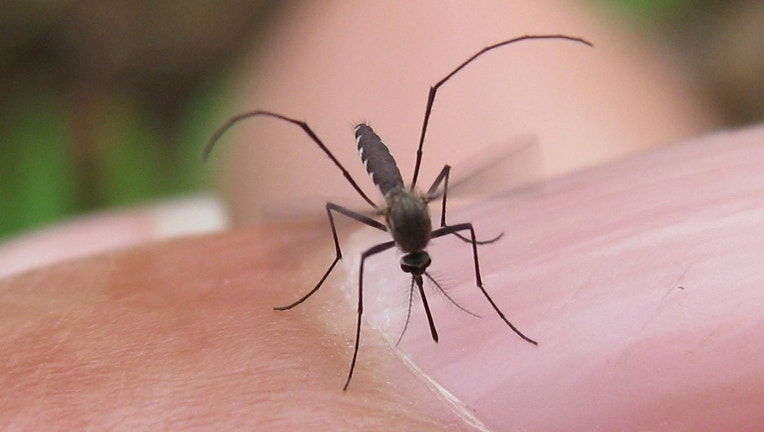First West Nile Virus mosquito sample discovered in NW Harris Co.

HARRIS COUNTY, Texas - Harris County Public Health has confirmed its first West Nile Virus sample for 2021.
The mosquito sample was identified and collected in the northwest area of Harris County.
FOR THE LATEST NEWS UPDATES, DOWNLOAD THE FOX 26 NEWS APP
Harris County Public Health’s Mosquito and Vector Control Division will be treating the affected area.
Officials say mosquitoes are present throughout the year, however peak activity occurs in warmer weather, specifically from June through October. Out of the 56 species of mosquitoes found in Harris County, only a handful transmit diseases, such as West Nile Virus, Saint Louis Encephalitis, Chikungunya, Dengue and Zika.
"Our Mosquito and Vector Control Division has more than 50 years of experience serving Harris County and protecting residents from mosquito-borne diseases. When mosquito samples are confirmed positive for mosquito-borne disease, our team moves quickly to address and treat the area of concern. We encourage residents to take precautions this mosquito season and reach out to us if they have questions, concerns or are in need expert advice," said Chris Fredregill, Director of Mosquito and Vector Control Division.
SIGN UP FOR FOX 26 HOUSTON EMAIL ALERTS
As the summer months approach, officials have some tips on how you can protect yourself and your family from mosquito-borne diseases.
Personal Protection
- Use an EPA-registered insect repellent. Always apply as directed on the label.
- Do not use insect repellents on babies younger than two months of age.
- Do not use products containing oil of lemon eucalyptus or para-menthane-diol on children younger than three years of age.
- Wear long-sleeved shirts and long pants when possible.
At Home
- Remove/empty any containers that can hold water such as tires, flowerpots and toys.
- Change water in birdbaths and pet water bowls every three to five days.
- Keep rain gutters clean and free of debris.
- Make sure screens are in good condition.
- Do not sweep lawn clippings, leaves or litter into storm drains.
For additional information, including interactive maps of mosquito-borne disease activity, click here.

